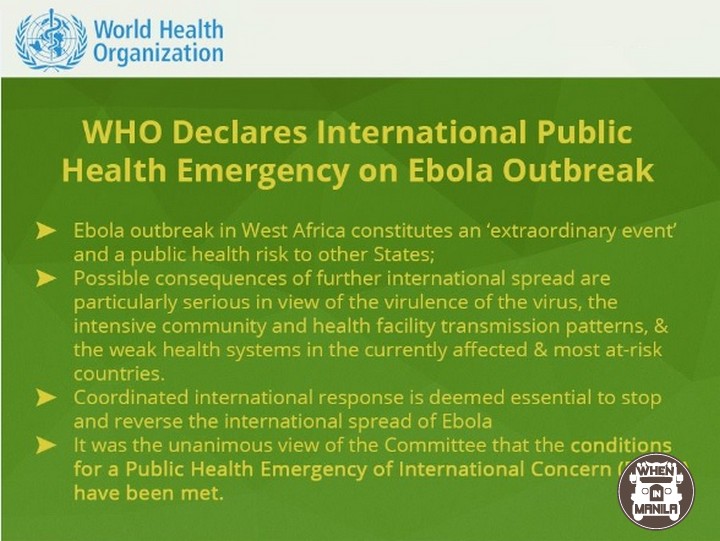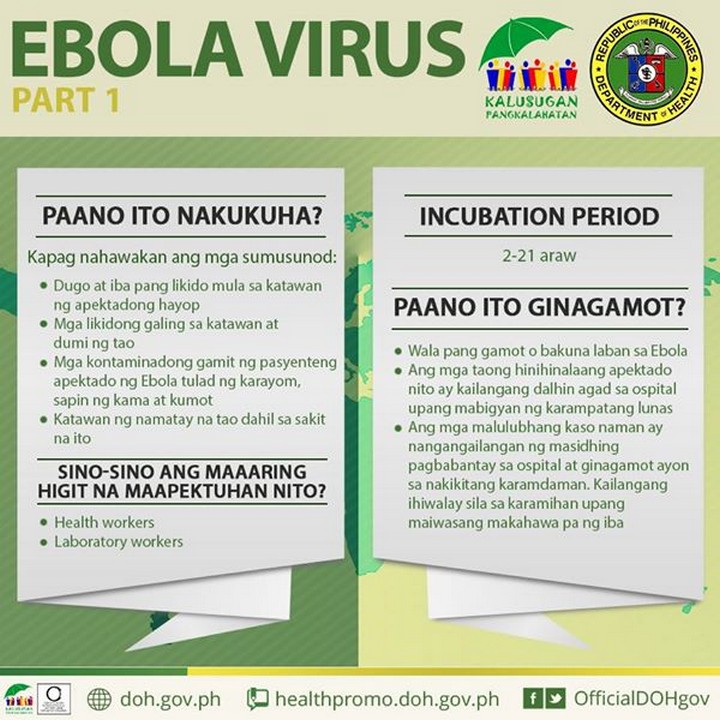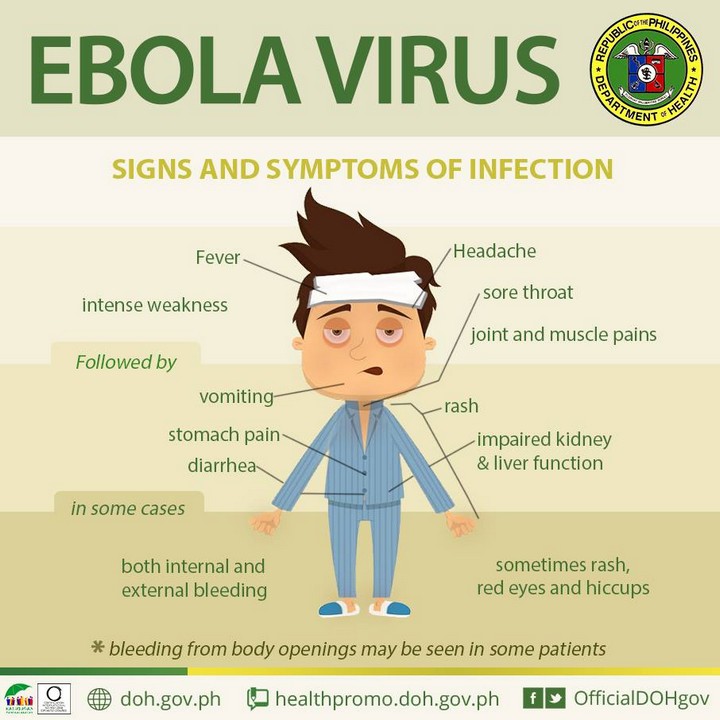The Ebola Virus Disease: Keep Yourself Updated and in the Know!
The good news is that the dreaded Ebola Virus Disease (EVD), which has killed nearly 800 in Western African countries, has not reached the Philippine shores. But as the Department of Health (DoH) Secretary Enrique Ona said, “Knowing your enemy is half the battle won”. Or as the old cliché goes: forewarned is forearmed.
We cannot be really complacent about the risk of the Ebola virus disease penetrating our country since we have about 3,500 overseas Filipino workers (OFWs) working in EVD-affected countries. Data from show there are about 880 Filipinos living in Guinea; 1,979 in Sierra Leone; and 632 in Liberia, including the 148 Filipino UN Peacekeeping Force. Meanwhile, as per POEA records: there are 72 in Guinea, 398 in Sierra Leone and 202 Filipino workers in Liberia.
As of July 31, 2014, the number of cases in the four affected West African countries has so far reached 1323, which includes 729 deaths. The over-all case fatality rate is at 55%. The government agencies are coordinating with those countries to prepare for the eventual or potential arrival of OFWs and foreign nationals from West Africa and to prevent the spread of the Ebola Virus Disease.
Guidelines on handling Filipinos in affected areas are being widely implemented. Any eturning symptomatic Filipino (those who have fever, headache, intense weakness, joint and muscle pains and sore throat) should seek clearance with the local health authorities from the country of employment before being allowed to embark.
A deployment ban is now in effect for newly hired OFWs to the countries. The DFA has raised Alert Level 2 for Guinea, Sierra Leone and Liberia. Recruitment agencies have been notified by employers in West Africa of repatriation of 15 OFWs from Sierra Leone. The DOH is now monitoring these OFWs for 30 days after their departure from their points of origin.
DoH Secretary Ona assured the public that we have the capability and the facility to address Ebola. But the health department emphasized that basic hygiene goes a long way. Wash your hands regularly. Cover your mouth with a handkerchief when coughing. Make sure to get enough rest and sleep, so as not to weaken your immune system. The virus spreads among humans through direct contact with an infected person’s bodily fluids like blood, feces or urine and vomit.
The following are frequently asked questions (FAQs) about EVD and replies from the World Health Organization (WHO) website:
• What is Ebola virus disease? Ebola virus disease (formerly known as Ebola haemorrhagic fever) is a severe, often fatal illness, with a death rate of up to 90%. The illness affects humans and nonhuman primates (monkeys, gorillas, and chimpanzees). Ebola first appeared in 1976 in two simultaneous outbreaks, one in a village near the Ebola River in the Democratic Republic of Congo, and the other in a remote area of Sudan.
• How do people become infected with the virus? Ebola is introduced into the human population through close contact with the blood, secretions, organs or other bodily fluids of infected animals. In Africa, infection has occurred through the handling of infected chimpanzees, gorillas, fruit bats, monkeys, forest antelope and porcupines found ill or dead or in the rainforest. Once a person comes into contact with an animal that has Ebola, it can spread within the community from human to human. Infection occurs from direct contact (through broken skin or mucous membranes) with the blood, or other bodily fluids or secretions (stool, urine, saliva, semen) of infected people. Infection can also occur if broken skin or mucous membranes of a healthy person come into contact with environments that have become contaminated with an Ebola patient’s infectious fluids such as soiled clothing, bed linen, or used needles.
• What are typical signs and symptoms of infection? Sudden onset of fever, intense weakness, muscle pain, headache and sore throat are typical signs and symptoms. This is followed by vomiting, diarrhea, rash, impaired kidney and liver function, and in some cases, both internal and external bleeding. Laboratory findings include low white blood cell and platelet counts, and elevated liver enzymes.
• When should someone seek medical care? If a person has been in an area known to have Ebola virus disease or in contact with a person known or suspected to have Ebola and they begin to have symptoms, they should seek medical care immediately.
• What is the treatment? Severely ill patients require intensive supportive care. They are frequently dehydrated and need intravenous fluids or oral rehydration with solutions that contain electrolytes. There is currently no specific treatment to cure the disease. Some patients will recover with the appropriate medical care.
• What can I do? Can Ebola be prevented? Currently there is no licensed vaccine for Ebola virus disease. Several vaccines are being tested, but none are available for clinical use right now. Raising awareness of the risk factors and measures people can take to protect themselves are the only ways to reduce illness and deaths.







